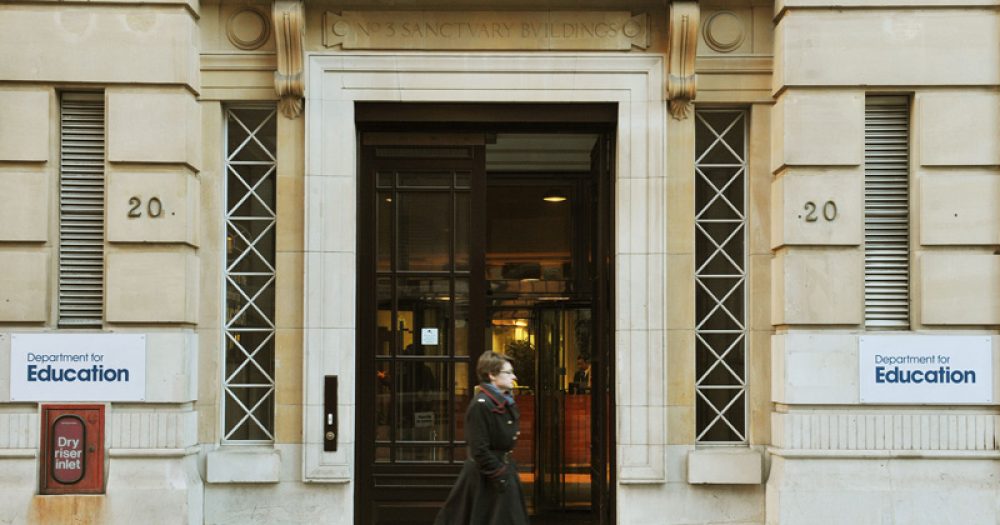The government has finally set out which children will be eligible to continue to attend schools in England from Monday.
Headteachers have waited for this information for more than 24 hours, since Gavin Williamson, the education secretary, announced plans to shut schools to most pupils from this afternoon (Friday).
Only children of key workers – those considered critical to the country’s response to the coronavirus pandemic – and vulnerable pupils will attend schools for the foreseeable future.
In guidance published late yesterday evening, the Cabinet Office and Department for Education published a list of roles that are considered to be those of “key workers”. These are listed below, as published.
The government has also clarified that vulnerable children include those who are supported by social care, those with safeguarding and welfare needs, including child in need plans, on child protection plans, ‘looked after’ children, young carers, disabled children and those with education, health and care plans.
According to the guidance, those in the roles listed below will have their children prioritised for education provision if they cannot be kept at home.
The government has said that “many parents working in these sectors may be able to ensure their child is kept at home”, and that “every child who can be safely cared for at home should be”.
It has also been confirmed, in separate guidance for parents, that children will be eligible to attend school even if just one parent or carer is identified as a “critical worker”.
‘Key workers’
Health and social care
Includes but is not limited to doctors, nurses, midwives, paramedics, social workers, care workers, and other frontline health and social care staff including volunteers; the support and specialist staff required to maintain the UK’s health and social care sector; those working as part of the health and social care supply chain, including producers and distributers of medicines and medical and personal protective equipment
Education and childcare
This includes nursery and teaching staff, social workers and those specialist education professionals who must remain active during the COVID-19 response to deliver this approach
Key public services
This includes those essential to the running of the justice system, religious staff, charities and workers delivering key frontline services, those responsible for the management of the deceased, and journalists and broadcasters who are providing public service broadcasting
Local and national government
This only includes those administrative occupations essential to the effective delivery of the COVID-19 response or delivering essential public services such as the payment of benefits, including in government agencies and arms length bodies
Food and other necessary goods
This includes those involved in food production, processing, distribution, sale and delivery as well as those essential to the provision of other key goods (for example hygienic and veterinary medicines)
Public safety and national security
This includes police and support staff, Ministry of Defence civilians, contractor and armed forces personnel (those critical to the delivery of key defence and national security outputs and essential to the response to the COVID-19 pandemic), fire and rescue service employees (including support staff), National Crime Agency staff, those maintaining border security, prison and probation staff and other national security roles, including those overseas
Transport
This includes those who will keep the air, water, road and rail passenger and freight transport modes operating during the COVID-19 response, including those working on transport systems through which supply chains pass
Utilities, communication and financial services
This includes staff needed for essential financial services provision (including but not limited to workers in banks, building societies and financial market infrastructure), the oil, gas, electricity and water sectors (including sewerage), information technology and data infrastructure sector and primary industry supplies to continue during the COVID-19 response, as well as key staff working in the civil nuclear, chemicals, telecommunications (including but not limited to network operations, field engineering, call centre staff, IT and data infrastructure, 999 and 111 critical services), postal services and delivery, payments providers and waste disposal sectors








might just as well have kept the schools open
I am midday supervisor at a school was never classed as a key worker until closure of my school so I now have to go in I would like to know why
My husband works in the dental sector at Guys Hospital. He is still working producing his dental work for patients of clinics that are now shut – yet still they have no directive of what to do! I don’t believe they are front-line and are putting themselves at risk going into London on the train and then spending time at the hospital when they are not required!! NHS management are ignoring the dental professionals.
My grand kids have to go to school as both parents are key workers but I am young, healthy and prepared to help but can’t. Surely they are more at risk at school than they are with me. I live alone and am not a key worker.
I am training officer in a specialist school and all training has stopped until further notice and now i am being told I am a key worker and need to be in work every day and told I cant work remote… and cant even do the right thing during a lockdown … something is not right the government needs to drill down further who is a key worker not just generic
Hi,
I’m a midday supervisor at a primary school with just year 6 going back and I’ve been asked to go back on the 1st of June, do I have to do so in order to keep my job?
I will not be sending my son back who’s in year 4 if we are asked at a later date to do so.